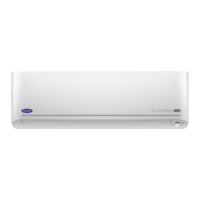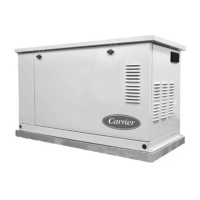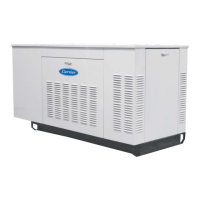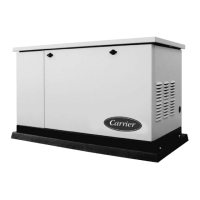4–5 T-361
4.3 ALTERNATING CURRENT GENERATOR
Charger does not charge Open BCF3, BCF4, or BCF5 Replace
Charger is not receiving AC input Use voltmeter to confirm charger is
receiving 360−500 VAC. If not,
check input connections/fuses.
Charger output is not connected to 12 volt
battery
Check output wiring connections to
battery.
Charger is bad Replace
Low output voltage measured
across charger output
Battery not connected to charger. It is
normal to measure 12 volts or less across
charger output with no battery connected
Check charging leads from charger
to battery
Reverse polarity connection to
battery has caused charger to
stop charging
Internal DC fuse blown and possible
damage to current carrying components
Replace
Table 4–8 Alternating Current Generator
Condition Possible Cause Remedy/Reference Section
No voltage Loss of rotor magnetism Replace
Circuit breaker tripped Check CB1
Open in stator windings Replace
Short circuited Replace
Worn drive gear stripped Check/Replace
Contactor not engaged Replace
Low voltage Low engine speed Section 5.5.12
High resistance connections, connections
are warm or hot
Tighten
Loss of rotor magnetism Replace
Fluctuating voltage (May be
indicated by flickering lights)
Fluctuating speed Section 5.5.12
Irregular speed of engine Engine Manual
Loose terminal or load connections Tighten
Bad bearing causing uneven air gap Replace
High voltage Excessive engine speed Section 5.5.12
Overheating Generator overloaded Check
Clogged vents / baffles Check/Clean
High temperature surrounding generator Section 5.5.5
Insufficient air circulation or recirculation Check/Clean
Unbalanced load Balance
Dry bearing Replace
Table 4–7 Battery Charger (Solid State)
Condition Possible Cause Remedy/Reference Section

